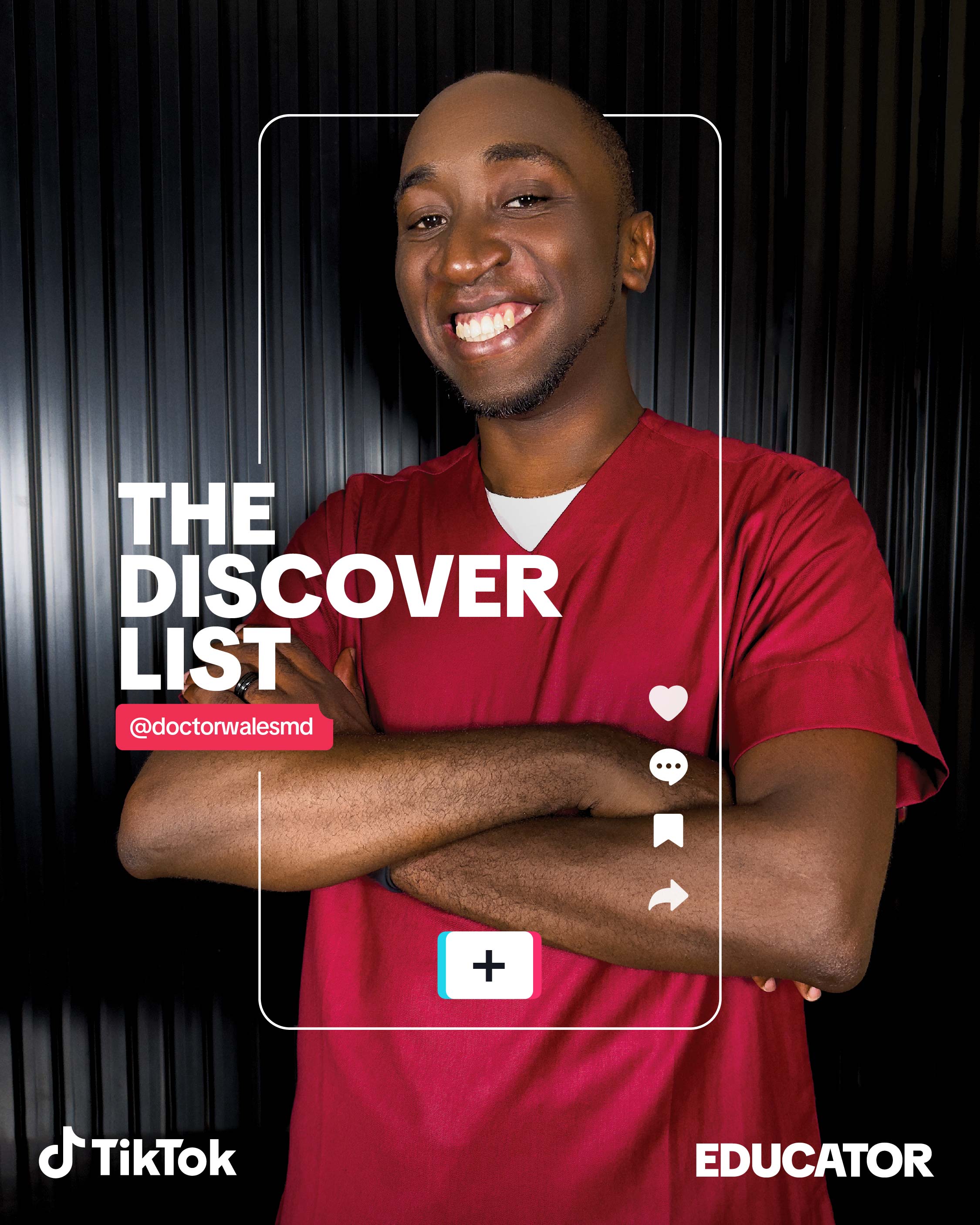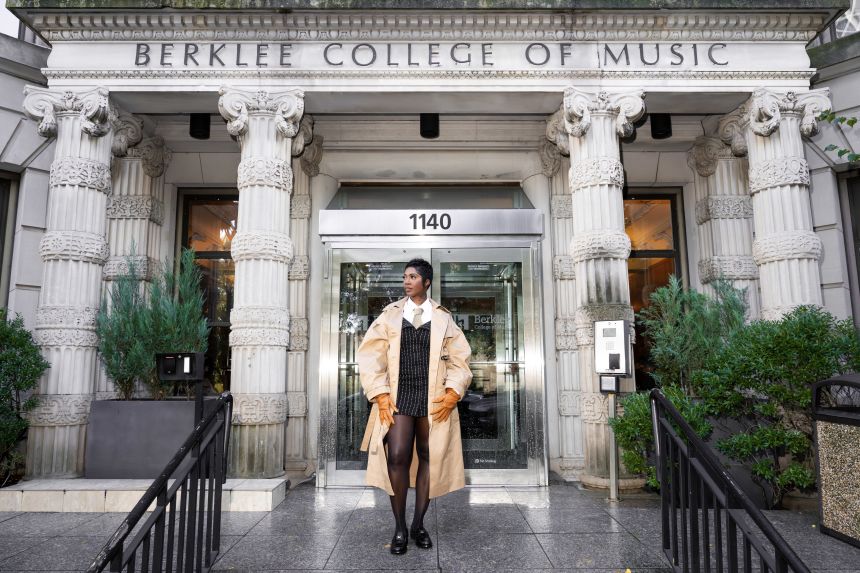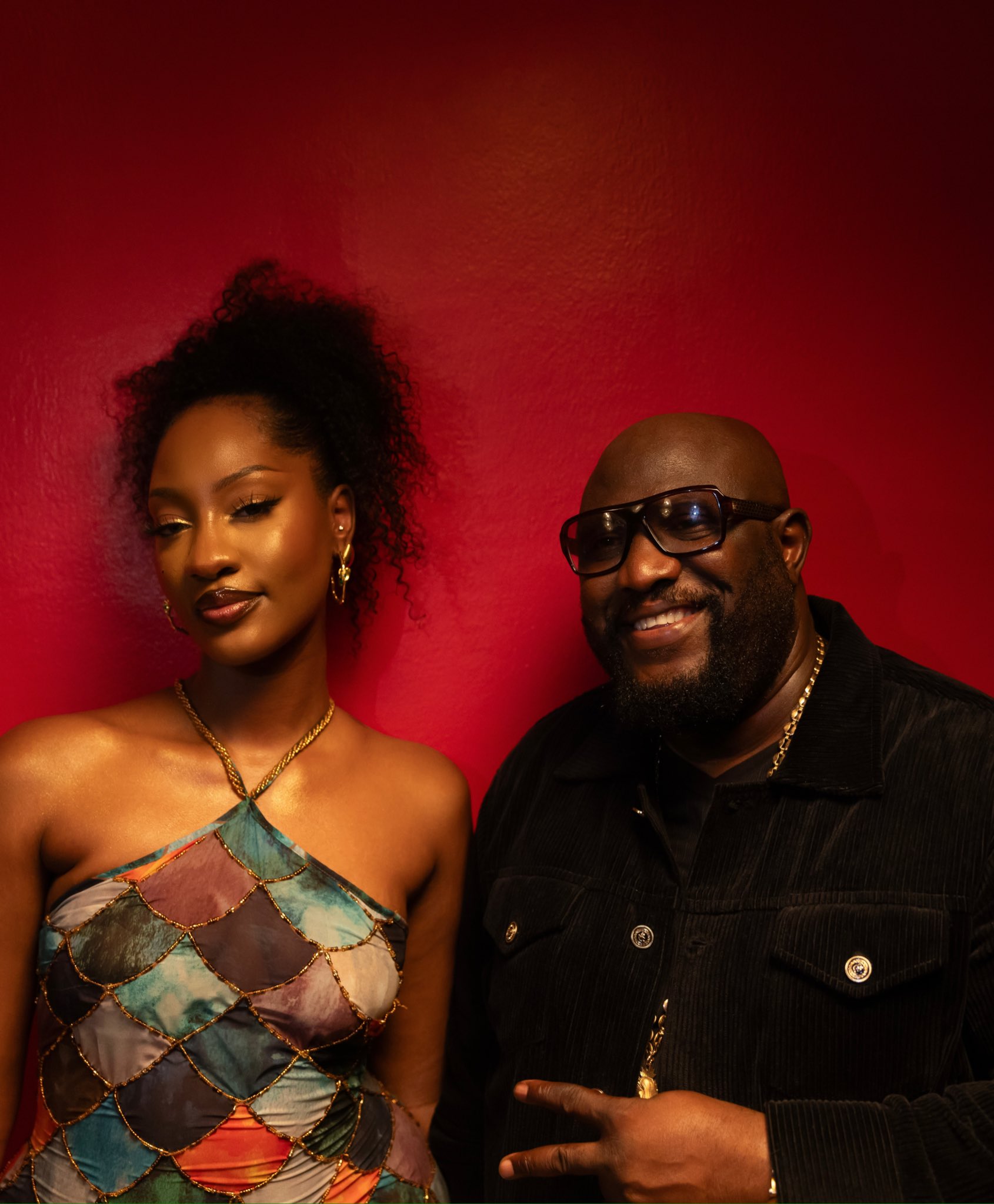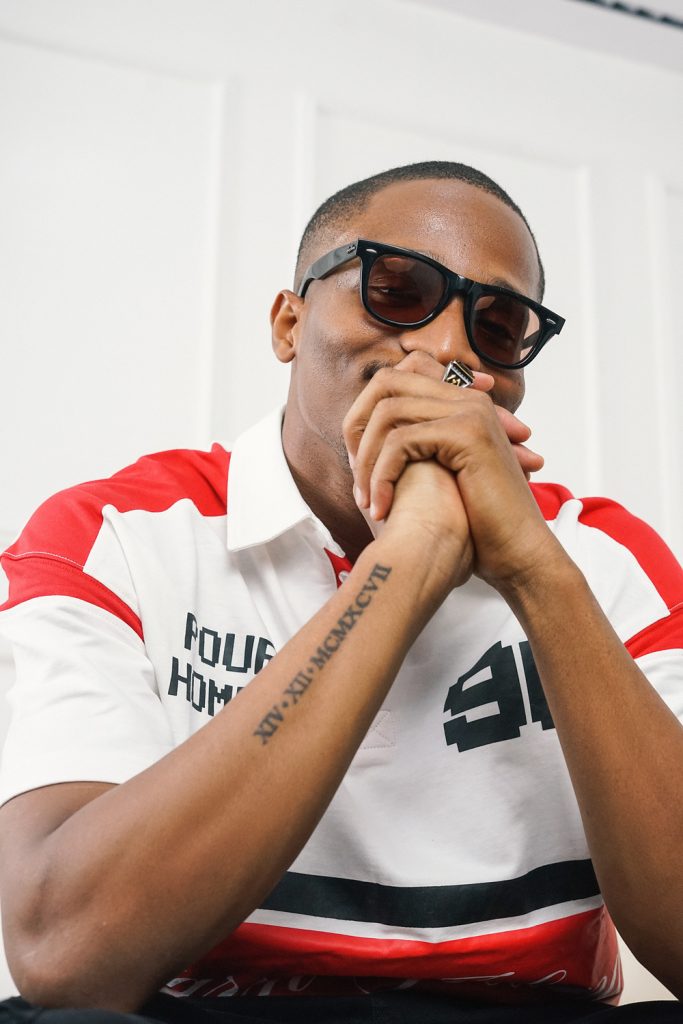
Nigeria’s entertainment and nightlife scene has evolved; with this evolution, the role of disc jockeys (DJs) has become more essential than ever. DJs, alongside hypemen, are the heartbeat of every party, setting the tone and creating unforgettable moments.
One DJ carving out a niche in this vibrant industry is Nino. Since breaking out in 2022, he has accomplished impressive milestones, becoming the Resident DJ at Amapiano District and Upper Riddim.
In an interesting conversation, Nino takes us through his journey into the world of DJing, a career path rarely considered a conventional choice, especially in this part of the world. It’s a tough decision, requiring grit, passion, and resilience.
So, sit back, relax, and step into DJ Nino’s world as he shares his story, his path, his passion, and the art of moving the crowd.
TUE:. Let’s start from the beginning. DJing wasn’t as popular back in the day as a full-time career. What inspired you to become a DJ? How did it all start?
NINO: It started way back in secondary school when I was the social prefect. I was the one in charge of music during social nights or any social gatherings. At the time, I had a Virtual DJ on my laptop, and I’d always handle the music.
Seeing DJs at parties also intrigued me. I’d watch what they did and try to learn. It became a habit, trying out what I’d seen, especially during school events. That’s where the spark came from.
TUE: And from there, how did it evolve into something full-time?
NINO: After secondary school, during holidays, I had a neighbor who was a DJ. He used Virtual DJ too, and I’d watch him do his thing. Sometimes I’d go to play games, but if the desktop was free, I’d experiment with Virtual DJ.
Fast forward to university, I wasn’t really DJing but still had Virtual DJ on my laptop. It was my first download before even Microsoft Office. One day, I saw a DJ using a controller, and I used it too and it piqued my interest again.
Later on, during the holidays, I reconnected with a secondary school friend who was a professional DJ. He had a small controller, maybe an SB2 or SB3, and we’d vibe together. He once told me, “Guy, you’ll be a DJ one day.” I laughed it off because I was focused on a 9-to-5 in investment banking at the time.
TUE: But eventually, that changed?
NINO: Yeah, it did. I’d still DJ occasionally during family New Year parties. By 2022, my friends started recognizing my talent. After inviting my friends Victor and Bolu to my New Year’s party, Bolu invited me to play at his family’s New Year party, and the feedback was great.
At that point, my 9-to-5 wasn’t working for me. Then my guy Fortune told me about a lounge that needed a DJ every Friday. I thought, “Why not?” I bought my first controller with some money my mom gave me, an SB3, and started at Art Café.
TUE: How was that first experience at Art Café?
NINO: It was amazing. I played four-hour sets for their Friday happy hours. To me, it was just fun, but then I realized I was making more money from DJing than my 9-to-5. That’s when I decided to quit my job.
TUE: By then, you’d started gaining traction, right?
NINO: Yeah, I had done a couple of events like Upper Riddim and even played for Danny Brownz’s Summer Curriculum. It felt like things were falling into place.
So, after the independence holiday in October, I concluded I wasn’t going back to the office. It was all about being a DJ from then on.
TUE: How did you get to where you are today? What made you become more “out there” in the industry?
NINO: Funny enough, it all started when I was playing one day at Art Cafe. A waiter came over with a cocktail I hadn’t ordered. He said some guy had sent it over. I looked around, and the guy waved at me, it was Dami.
Turns out, Dami works for Faaji. I didn’t realize that he and his friends had been enjoying themselves there because of my Amapiano playlist. After that, I went over to thank him, and we got talking. He mentioned how much he looked forward to my sets whenever he came around.
I didn’t connect the dots immediately when he mentioned Faaji because I had been trying to get on Amapiano District’s radar for a while. One thing led to another, I met Moyo the following week and Ebun. They both said I’d be given a set.
This was back when Amapiano District was still at 17th Avenue. I played that set, and the response was incredible. I became a resident DJ and I kept shutting down every set I played. From there, I grew and started playing at Danny Brownz’s Summer Curriculum.
TUE: That’s amazing. It sounds like the connections you made helped your journey.
NINO: Yeah. For example, Chiby happened to be there at one Summer Curriculum event at Wave Beach. If you search my name on Twitter on Chiby’s timeline, you’ll find a tweet about how we met. He enjoyed my set so much that he invited me to play at Chibyverse.
That event was back when it was still at Moist Beach. Playing there opened up even more opportunities. Chiby gave me a main set after that. From there, I met people like Active Boy, Obi, and Dope Caesar. It’s been a gradual but exciting trajectory.
TUE: From an outsider’s perspective, it looks like you already knew all these people. But it seems like your talent spoke for itself.
NINO: Oh, I didn’t know anyone. I was a proper 9-5 insider. I wasn’t going out. My first real “outsider” experience was when I started going to Art Cafe. From there, I began exploring different events.
Everything happened because people heard my mixes and appreciated them. It was all about putting myself out there and getting positive feedback.
TUE: Was there a defining moment when you realized you had to DJ full-time? Or was it just the frustration of a 9-5 job?
NINO: I didn’t like my 9-5, but even then, I wanted to transition into entertainment. I always loved the industry but didn’t know how to break in.
Playing at Art Cafe gave me the confidence I needed. The positive reviews pushed me to take it seriously. I even told my mom about it. She prayed for me and gave me her full support. That made all the difference.
TUE: How would you describe your sound and style? Is there a niche you favor?
The scene has grown tremendously. When I started, I didn’t know much, but now it’s amazing to see how DJs are being taken more seriously. The importance of a DJ at a party, alongside the hype man, has become widely recognized. There’s so much talent out there
Nino, 2024
NINO: I wouldn’t say I have a particular niche. I like to read the room and play what the crowd wants to hear. But I enjoy Afrobeats, Amapiano, and House music.
At the same time, I can play anything as long as I’ve prepared for it. It’s all about understanding the crowd, whether it’s a warm-up set, a main set, or a closing set. I make sure to deliver.
TUE: What’s been your most memorable performance so far?
NINO: There are so many that it’s hard to pick one. But off the top of my head, one of the craziest sets I’ve played was at Amapiano District’s Upper Riddim with Lituation Rave. The energy at that party was unreal.
Another unforgettable one was Chibyverse last year. The next DJ couldn’t make it, so I ended up playing for six or seven hours straight. Every Upper Riddim set I’ve done has also been special in its own way.
TUE: Have you had any set that did not go as planned? Any failed set?
NINO: Yeah, there was an Amapiano district set I played in March last year. I was overthinking the set, and I didn’t do well. I’m someone who tries to critique myself. I’ll talk to people afterward, and they’ll say I did well, but I know I didn’t do well.
Another thing is, I don’t like listening to my mixes because I have this perfectionist mindset. If I listen to it, I’ll start thinking it’s not good enough, and I won’t want to do it again. So I just do it and leave it.
TUE: How do you curate your sets? Is it on the spot or do you plan it?
NINO: I don’t like making mixes, but I know I have to put work out there. I’ll talk to my manager, and he’ll ask what vibe we’re going for, and we’ll figure it out. Sometimes it takes me two to three tries before I’m like, “Okay, this is it.” The vibe has to feel right, and I have to enjoy it. If I’m not enjoying it, then it’s not worth doing.
TUE: Have you faced any challenges in your journey so far?
NINO: Yes, a lot. Sometimes, there’s a dry spell when bookings aren’t coming in. Curating my event is a challenge, too, people who create their events deserve a lot of credit. From sponsors to vendors, there’s so much that can go wrong. It’s a lot, but you just have to keep going and handle things one step at a time.
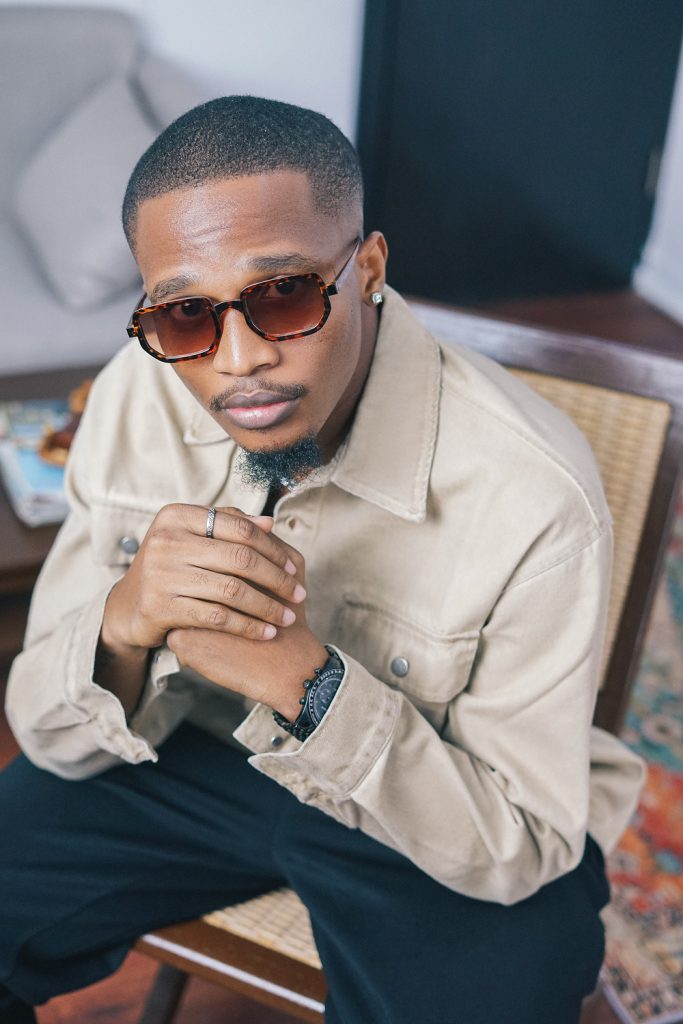
TUE: How do you see the DJ scene now compared to when you started?
NINO: The scene has grown tremendously. When I started, I didn’t know much, but now it’s amazing to see how DJs are being taken more seriously. The importance of a DJ at a party, alongside the hype man, has become widely recognized. There’s so much talent out there. You think you’re good, but then you see someone else blow your mind. The scene is growing, and it’s exciting to see DJs creating their events and not relying on show promoters anymore.
TUE: Do you have any pre-performance rituals?
NINO: Before my set, I don’t drink alcohol. I want to stay in control. I’ll stand off to the side, maybe next to the DJ playing before me, and read the crowd. I’m just trying to figure out how to start and how to approach the vibe. Some people think I’m being snobbish, but I’m just in my head, thinking through the set. It’s not snobbishness; it’s about getting mentally ready.
TUE: You mentioned striving for perfection. How do you challenge yourself to stay innovative?
NINO: Staying innovative requires constant practice. I can’t just do the same thing every time. I keep trying new things, exploring different music, and being creative. It’s about being open to experimentation and pushing your limits. You never know what might become your next breakthrough. Creativity is key to staying relevant in this ever-evolving scene.
TUE: How do you balance your DJ life with your personal life? I mean, most of your sets are at night and run into the morning. What’s your work-life balance like?
NINO: That’s something I’m still figuring out. Right now, I’d say I’m not doing great at it because there isn’t much balance, and it’s affecting me. If I’m not DJing at night, I’m in meetings the next day, working on events, or managing a project. It’s nonstop.
I know I need to change things. I need to give myself breaks, time to just be me, not the DJ, but a human being. I’ve been so focused on work, work, work, and that’s not always healthy.
So yeah, I’m still finding that balance. Right now, it’s DJing at night, managing projects and events during the day, and trying to push things forward. It’s a work in progress, but I’m getting there.
TUE: DJs have become such a crucial part of the music scene now, almost as important as the artists themselves. So at this point, you’ve got fans, people who look up to you. How do you connect with your audience, not just during events but afterward?
NINO: That’s also a work in progress. I’m naturally a very private person. You won’t find much about me unless I put it out there myself. But I’m working on letting people see more of me outside the DJ booth.
I want to share my daily routines, the things I enjoy doing, playing football, gaming, and hanging out with friends. Those are ways I can connect with my audience, but it’s still something I’m figuring out.
TUE: Makes sense. You’re still adjusting to the spotlight. What’s next for you? Are any collaborations or projects lined up for the rest of the year and beyond?
NINO: December is all about parties and fun, it’s that time of year. But I’m also planning for next year. Upper Riddim as always, and there’s a lot in the works with my team at Amapiano District and Upper Entertainment.
I’m also diving more into house music. It’s a vibe I want to explore, so expect some projects in that direction. And collaborations are coming up, lots of them with other DJs. We’ve been working on it for a while, so 2025 is going to be exciting.
TUE: Finally, what advice would you give to aspiring DJs?
NINO: First, practice, practice, practice. Get familiar with music, your equipment, and the craft itself. Attend events, and be part of the scene. You might have to do free gigs at first, but it’s all part of the journey.
When you get your chance to be on stage, don’t freeze. Connect with other DJs, party organizers, and people in the industry. Build your network and keep learning. With time, it will all start to feel natural, and you’ll find your place in the scene.


